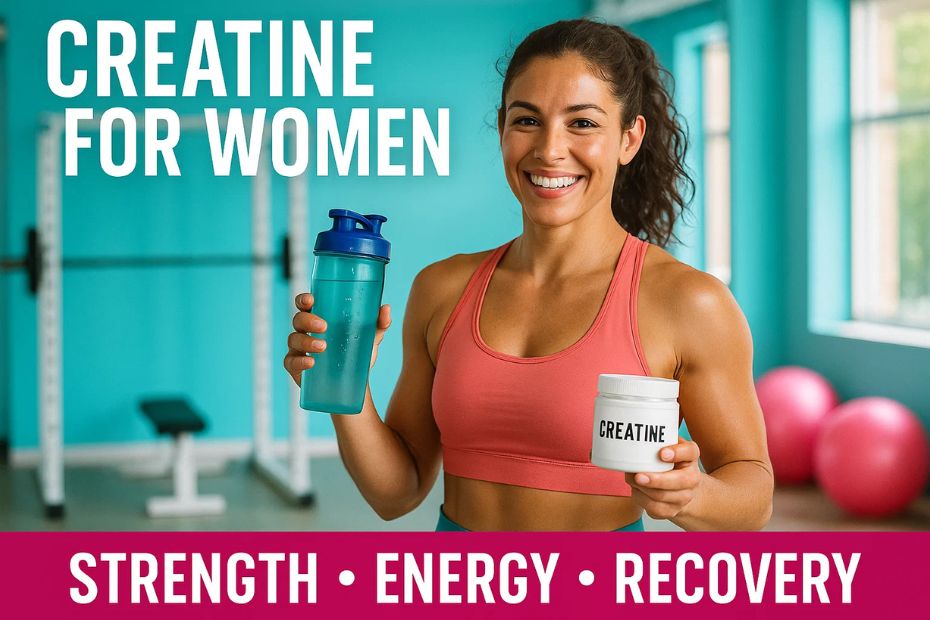When it comes to supplements, few are as misunderstood—especially among women—as creatine monohydrate. It’s one of the most researched sports supplements in the world, yet myths about bloating, weight gain, and “becoming too bulky” often scare women away. Let’s cut through the noise and look at what science really says.
Myth 1: Creatine will make me bloated
The truth: Creatine draws water into your muscle cells, not under your skin. This means the water is stored inside the muscle, where it helps fuel performance and recovery. The result is muscles that feel fuller and stronger, not puffier. Some people may notice a small increase in water weight during the first week, but it’s not the same as bloating.
Myth 2: Creatine makes you gain fat or look bulky
The truth: Creatine does not contain calories and cannot directly cause fat gain. The small weight increase some people see is due to water retention inside the muscle (a good thing for performance). As for looking bulky—building significant muscle mass takes years of training, specific nutrition, and in many cases, elevated testosterone levels. For women, creatine supports lean muscle development, tone, and athletic performance—not “bodybuilder size.”
Myth 3: Creatine is only for men
The truth: This couldn’t be further from reality. Women benefit from creatine just as much as men. Research shows that creatine can:
- Improve strength and power, helping you lift heavier or sprint faster.
- Enhance recovery between workouts.
- Support brain health and cognitive function.
- Even provide benefits for bone health—something especially important for women as they age.
Far from being “masculine,” creatine supports overall wellness and resilience.
How Creatine Actually Works
Creatine is a natural compound found in foods like red meat and fish, and your body also makes it. It’s stored in muscles as phosphocreatine, which helps regenerate ATP—the primary energy currency of your cells. During short, intense activities (like lifting weights or HIIT), creatine gives you that extra edge to perform better, recover faster, and gradually build more strength and lean muscle.
Simple Dosing Protocol
You don’t need to overcomplicate it:
- Loading Phase (optional):
- 20 g/day split into 4 doses for 5–7 days.
- This saturates your muscles quickly.
- Maintenance Phase:
- 3–5 g/day (about 1 teaspoon), preferably with food or after training.
- Consistency matters more than timing.
If you’d rather skip the loading phase, just start with 3–5 g/day—it will take a few weeks longer to fully saturate your muscles, but you’ll still get the benefits.
So, Should Women Take Creatine?
Yes—if you train, play sports, or just want better energy and recovery, creatine monohydrate is safe, effective, and inexpensive. Decades of research show no harmful effects in healthy individuals.
Think of creatine as an empowerment supplement: it won’t make you “masculine,” but it will help you feel stronger, perform better, and recover faster.
Bottom line: Creatine isn’t just for male athletes. It’s a science-backed ally for women who want to train hard, support long-term health, and unlock their full potential.
